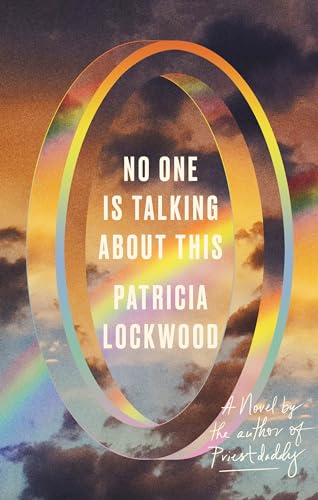

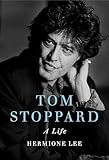 I began the year 2021 reading ambitiously, tearing through galleys and ARCs. I had visions of buckling down and being a critic again: writing a review or two each month, making a best-of list at the end of the year that didn’t seem like a weak cousin to Laura’s much better, more authoritative list. I read Patricia Lockwood’s No One Is Talking About This (two very good books stitched together a little awkwardly) and Jessica Winter’s The Fourth Child (an extremely good book that sticks the ending like nothing I’ve read recently). I read Mark Harris’s Mike Nichols biography and Hermione Lee’s Tom Stoppard biography and, since I was reviewing the latter, the half-dozen or so Stoppard plays I’d never gotten around to. I read Anna North’s fun Outlawed and Hannah Kirshner’s warm Water, Wood, and Wild Things and Claire Thomas’s rigorous The Performance. I edited a piece about Deesha Philyaw and read her delightful, longlist-crashing collection The Secret Lives of Church Ladies. I read the New Zealand novelist Rachel Kerr’s delicious Victory Park, about a council estate that welcomes, as a new tenant, the wife of a disgraced Ponzi schemer. I read Isabel Yap’s imaginative collection Never Have I Ever and J. Robert Lennon’s creepy novella Subdivision and the new Ishiguro, which I didn’t really like.
I began the year 2021 reading ambitiously, tearing through galleys and ARCs. I had visions of buckling down and being a critic again: writing a review or two each month, making a best-of list at the end of the year that didn’t seem like a weak cousin to Laura’s much better, more authoritative list. I read Patricia Lockwood’s No One Is Talking About This (two very good books stitched together a little awkwardly) and Jessica Winter’s The Fourth Child (an extremely good book that sticks the ending like nothing I’ve read recently). I read Mark Harris’s Mike Nichols biography and Hermione Lee’s Tom Stoppard biography and, since I was reviewing the latter, the half-dozen or so Stoppard plays I’d never gotten around to. I read Anna North’s fun Outlawed and Hannah Kirshner’s warm Water, Wood, and Wild Things and Claire Thomas’s rigorous The Performance. I edited a piece about Deesha Philyaw and read her delightful, longlist-crashing collection The Secret Lives of Church Ladies. I read the New Zealand novelist Rachel Kerr’s delicious Victory Park, about a council estate that welcomes, as a new tenant, the wife of a disgraced Ponzi schemer. I read Isabel Yap’s imaginative collection Never Have I Ever and J. Robert Lennon’s creepy novella Subdivision and the new Ishiguro, which I didn’t really like.
You’ll notice I’m not linking to reviews of most of those. That’s because at some point my year transformed, when at long last I sold a novel, titled Vintage Contemporaries. The advance I received for it, plus savings accrued while never going anywhere fun in 2020, was enough to buy six months off of my job at Slate to do nothing but write fiction. I’m in the middle of the leave now. It’s absolutely mind-boggling. Never in my life has my only job been to write creatively—not even during my MFA, throughout which I worked full-time, because I foolishly went to a non-funded program. (Are you considering an MFA? Don’t do what I did.) The combination of the freedom, each day, to just write the thing I want to write, and the flexibility to deal with the kids and the house and the food has been absolutely intoxicating. I’ve even had time to apply for grants, all of which have rejected me, making me feel even more like a real novelist.
 The point is, when it became clear that, starting in the summer, I would be living an entirely different kind of life, I abandoned all thought of reading new books. I can be a critic later! My reading choices became very specifically targeted toward maximizing the pleasure and productivity of this shocking gift of time. While I was revising the novel, much of which is set in the 1990s, I read a whole bunch of trade paperback originals from the era. My favorite of the bunch was a pitch-black yet cozy comedy by John Bowen, The Girls, written in a why, omniscient voice that I now want to swipe for my own.
The point is, when it became clear that, starting in the summer, I would be living an entirely different kind of life, I abandoned all thought of reading new books. I can be a critic later! My reading choices became very specifically targeted toward maximizing the pleasure and productivity of this shocking gift of time. While I was revising the novel, much of which is set in the 1990s, I read a whole bunch of trade paperback originals from the era. My favorite of the bunch was a pitch-black yet cozy comedy by John Bowen, The Girls, written in a why, omniscient voice that I now want to swipe for my own.
But my goal for the leave wasn’t only to revise the first novel—it was to write as much as I could of a second one. The first took six years to write, mostly because I could never garner the necessary momentum writing at 10:45 p.m. three nights a month. I don’t want the second novel, if there is a second novel, to take that long. I’m old! So my notion was to spend six weeks writing a bunch of different ideas, pick the one that seemed most fun, and then go full throttle on it so that when I go back to work I will have a head of steam.
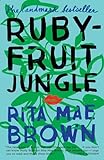
 While I was exploring new settings and inventing characters and working out the next thing, I read, almost exclusively, mass market paperbacks. I find this mode of story delivery to perfectly spur my own enthusiasm for coming up with ideas: They’re propulsive and imaginative, I suppose, is why it is. And they’re less intimidating than a new $28 hardcover. Reading a mass-market novel, I rarely feel the despair that tinges my readings of even the best novels by my most friendly contemporaries. I’m not trying to write Rubyfruit Jungle or Freaky Deaky, so I can just enjoy the hell out of them and use their energy to keep my idea-center chugging along.
While I was exploring new settings and inventing characters and working out the next thing, I read, almost exclusively, mass market paperbacks. I find this mode of story delivery to perfectly spur my own enthusiasm for coming up with ideas: They’re propulsive and imaginative, I suppose, is why it is. And they’re less intimidating than a new $28 hardcover. Reading a mass-market novel, I rarely feel the despair that tinges my readings of even the best novels by my most friendly contemporaries. I’m not trying to write Rubyfruit Jungle or Freaky Deaky, so I can just enjoy the hell out of them and use their energy to keep my idea-center chugging along.

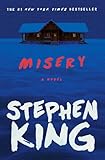
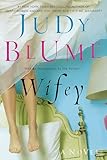 During my mass-market binge, I learned that Larry McMurtry’s Lonesome Dove and Stephen King’s Misery really hold up, and that Judy Blume’s Wifey really does not. I discovered new SFF writers like John Scalzi, whose Old Man’s War series I devoured like popcorn, or Sheri Tepper, whose knotty gender puzzle The Gate to Women’s Country wowed me. I crossed two more novels off my rapidly dwindling list of unread Le Guin, both masterpieces: The Eye of the Heron and Four Ways to Forgiveness. I cackled aloud at Michael Dibdin’s positively amoral Dirty Tricks. And I absolutely loved John Jerome’s 1977 Truck, a cranky and wise meditation on the mechanical in which Jerome rebuilds a 1950 Dodge pickup from the ground up.
During my mass-market binge, I learned that Larry McMurtry’s Lonesome Dove and Stephen King’s Misery really hold up, and that Judy Blume’s Wifey really does not. I discovered new SFF writers like John Scalzi, whose Old Man’s War series I devoured like popcorn, or Sheri Tepper, whose knotty gender puzzle The Gate to Women’s Country wowed me. I crossed two more novels off my rapidly dwindling list of unread Le Guin, both masterpieces: The Eye of the Heron and Four Ways to Forgiveness. I cackled aloud at Michael Dibdin’s positively amoral Dirty Tricks. And I absolutely loved John Jerome’s 1977 Truck, a cranky and wise meditation on the mechanical in which Jerome rebuilds a 1950 Dodge pickup from the ground up.


 Finally, as I settled into a groove on the thing I’m actually spending the rest of my leave writing, I was able to return to the present, and even the future. Two books by friends and colleagues, both coming in 2022, are both exceptional: Isaac Butler’s The Method, a biography of the idea that transformed theater and film, and Michelle Herman’s Close-Up, a richly funny novel about magic, parenthood, literature, and disappointment. Last month I read Crossroads, which was predictably great, and Harlem Shuffle, which was predictably even greater. Less predictable was Tamara Shopsin’s clever Laserwriter II, which I picked up just for the intense emotional response its Adobe PageMaker-style graphics produced in me. This plus Truck really made me want to search out my own defunct technology to resuscitate. I think I just may have found the thing—another idea, maybe, for another book somewhere down the line.
Finally, as I settled into a groove on the thing I’m actually spending the rest of my leave writing, I was able to return to the present, and even the future. Two books by friends and colleagues, both coming in 2022, are both exceptional: Isaac Butler’s The Method, a biography of the idea that transformed theater and film, and Michelle Herman’s Close-Up, a richly funny novel about magic, parenthood, literature, and disappointment. Last month I read Crossroads, which was predictably great, and Harlem Shuffle, which was predictably even greater. Less predictable was Tamara Shopsin’s clever Laserwriter II, which I picked up just for the intense emotional response its Adobe PageMaker-style graphics produced in me. This plus Truck really made me want to search out my own defunct technology to resuscitate. I think I just may have found the thing—another idea, maybe, for another book somewhere down the line.
More from A Year in Reading 2021 (opens in a new tab)
Don’t miss: A Year in Reading 2020, 2019, 2018, 2017, 2016, 2015, 2014, 2013, 2012, 2011, 2010, 2009, 2008, 2007, 2006, 2005
